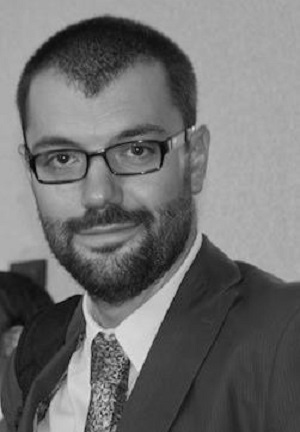Keynote Speakers
Kai Uwe Barthel
Institute for Media and Computing, HTW Berlin, Germany

Title: Scalable Methods for Visual Data Representation, Search, and Visualization
Abstract: Large visual datasets are increasingly common, demanding efficient systems for retrieval and exploration. This talk will present recent methods for handling such data, including leveraging large visual encoders to generate compact, high-quality descriptors. It will cover strategies to enhance cross-modal retrieval and explore approximate nearest neighbor search techniques, focusing on graph-based methods for dynamic datasets. Visualization approaches for high-dimensional data, like grid-based sorting, will also be demonstrated for intuitive navigation. Grid sorting requires efficient methods for such large datasets. Therefore, we introduce a parameter-efficient approach to learning permutations, requiring only N parameters for N objects. This method iteratively refines permutations, offering scalability for applications such as image sorting, graph optimization, or combinatorial tasks like solving Sudokus.
Bio: Kai Uwe Barthel is a professor at the Institute for Media and Computing at HTW Berlin, heading the Visual Computing Group. His work focuses on technologies for simplifying media retrieval, including image understanding, retrieval, metric learning, and visual exploration. During his PhD at TU Berlin, he specialized in fractal image compression and later led a 3D-video coding research project. As head of R&D at N-Tec Media and LuraTech Inc., he contributed to the JPEG2000 standard, developing advanced image and video compression solutions. Since 2001, he has taught image analysis, machine learning, and information retrieval at HTW Berlin. In 2009, he founded pixolution, a company specializing in visual image search. Prof. Barthel holds numerous patents, publications, and awards. More information can be found at: https://visual-computing.com/
Franco Maria Nardini
CNR-ISTI, Italy
 Title: Efficient Retrieval over Learned Representations of Text: Challenges and Opportunities
Title: Efficient Retrieval over Learned Representations of Text: Challenges and Opportunities
Abstract: In recent years, transformer-based large language models (LLMs) have significantly reshaped how large textual collections are indexed and retrieved. A key development driving this transformation is the use of LLMs to learn high-dimensional, contextual representations—either dense or sparse—of input text. These learned representations enable the identification of semantically similar items through nearest neighbor search techniques. This paradigm has had a profound impact not only on core information retrieval tasks, but also on other areas of research such as recommender systems, where learned embeddings improve the modeling of user preferences and item relevance, and retrieval-augmented generation, where external knowledge retrieved via these representations is used to ground generative models. In this talk, we will review recent advancements that enable efficient indexing and retrieval based on such representations. We will discuss the current limitations and emerging challenges. We will then propose some research opportunities that arise from this very dynamic area of research.
Bio: Franco Maria Nardini is a Senior Researcher with ISTI-CNR in Pisa, Italy. His research interests focus on Web Information Retrieval and Machine/Deep Learning. He authored over 100 papers in peer-reviewed international journals, conferences, and other venues. He has been General Co-Chair of ECIR 2025, Program Committee Co-Chair of SPIRE 2023, Tutorial Co-Chair of ACM WSDM 2021. He is a co-recipient of the ECIR 2025 Best Student Short Paper Award, the ACM SIGIR 2024 Best Paper Runner-Up Award, the ECIR 2022 Industry Impact Award, the ACM SIGIR 2015 Best Paper Award, and the ECIR 2014 Best Demo Paper Award. He coordinated activities in several EU and IT research projects. He is a member of the editorial board of ACM TOIS and a PC member of SIGIR, ECIR, SIGKDD, CIKM, WSDM, IJCAI, and ECML-PKDD. He currently teaches "Information Retrieval" in the Computer Science and AI Master Degrees of the University of Pisa.
Ari Jónsson
Videntifier Technologies, Iceland
 Title: Videntifier: Applications and Challenges of Scalable Similarity Search
Title: Videntifier: Applications and Challenges of Scalable Similarity Search
Abstract: Recognizing images and videos automatically and efficiently is an important application of similarity search across a wide range of domains: Law enforcement uses it to recognize and investigate illegal content; Social media platforms use it to both keep out unwanted content and to manage monetization of use-generated content; Advertisers use it to track the use of visual advertising content by partners, online advertisers, influencers, competitors, etc; Artists, studios and other content creators use it to detect the use of their copyrighted content; and so on. In this talk, we present the technology developed by Videntifier to make visual recognition accurate, robust, fast, and scalable. We discuss a number of different application cases that highlight real-world use of similarity search in multiple markets and at a wide range of scales. Finally, we discuss some of the exciting opportunities and challenges that emerging technologies are bringing.
Bio: Ari Jónsson completed his PhD in Computer Science from Stanford University in 1997, with emphasis on Artificial Intelligence. He then worked at NASA for ten years, developing AI-based technology to help operate complex spacecraft, including the Mars Exploration Rovers and the International Space Station. In 2007, he joined Reykjavik University and ended up serving as the university president for almost 12 years. At the same time, he contributed to the growth of the innovation and entrepreneurship ecosystem in Iceland, both through direct involvement in support for startups, and through government policy development, which included serving on the National Science and Technology Policy Council for ten years and leading a two year effort with MIT to strengthen the ecosystem in Iceland. Today, Ari is the CEO of Videntifier Technologies, one of the leading providers of automated visual content identification. He also sits on the boards of the NATO Innovation Fund, RARIK - the state electricity distribution company, and the Iceland-USA Chamber of Commerce.

